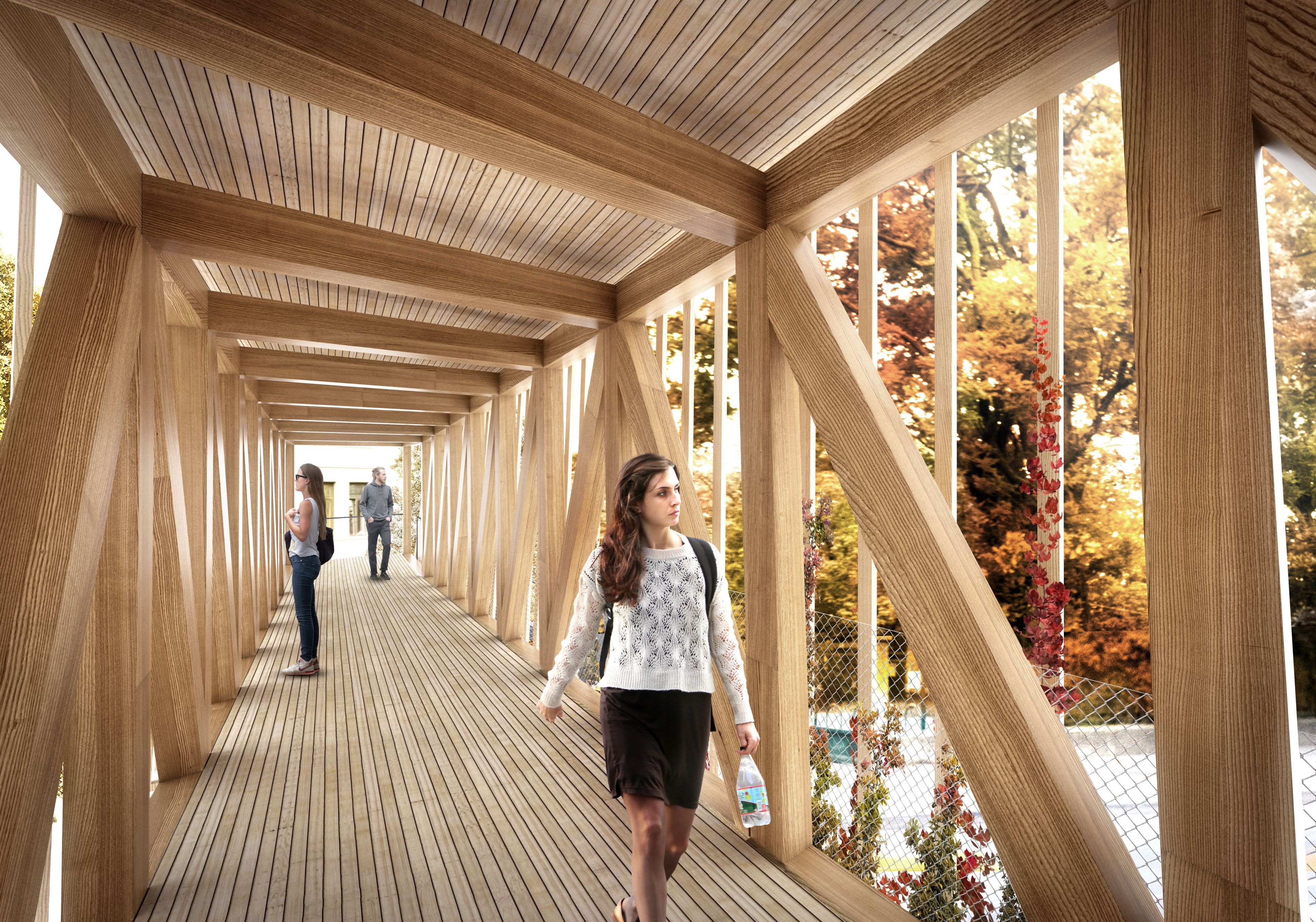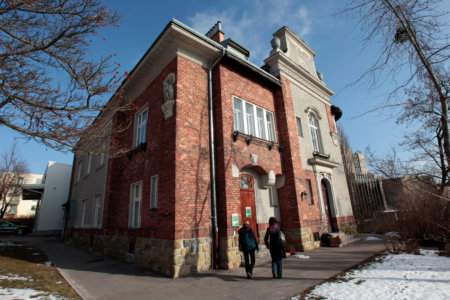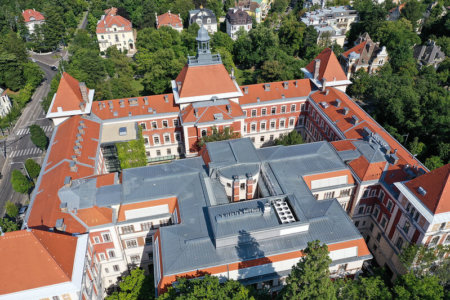Visualise a world where buildings don’t just cause harm or coexist with nature but enhance it, where communities are resilient in the face of climate change and where every drop of water is innovatively managed with the utmost care. As global challenges such as environmental degradation, climate change and water scarcity intensify, the need for visionary leaders equipped with sustainable solutions becomes all the more urgent.
At BOKU University, these ideas are transformed into reality through education and research. Since its inception in 1872 as a modest agricultural university, BOKU has grown into one of Europe’s most esteemed Life Sciences institutions, known for its comprehensive and forward-thinking approach.
Nestled across three campuses, it has a community of over 11,000 students and faculty, all dedicated to addressing global issues creatively. Amongst a broad lineup of English master’s programmes, three pathways stand out as incubators for world-changing ideas.
Master’s Programme in Green Building Engineering
The construction industry is a major contributor to environmental issues, responsible for over 30% of global greenhouse gas emissions and 40% of energy consumption. Construction and demolition activities generate about 35% of all waste in the EU.
BOKU’s Master’s Programme in Green Building Engineering is designed to address these challenges head-on. Graduates emerge with a deep understanding of green building principles, capable of designing new sustainable structures and transforming existing ones.
The curriculum covers key areas such as structural design, building physics, energy management, and building greening systems, all underpinned by the principles of resource efficiency and circular economy. It also includes knowledge in spatial planning, landscape architecture, and social sciences, ensuring a well-rounded education.
Through hands-on learning, students gain expertise in selecting sustainable materials, implementing maintenance and energy improvement measures, and navigating the legal and economic aspects of construction. It’s an effective way to learn — hence why many leave as sought-after experts in various sectors, including engineering, consulting, public administration, and research. Within these fields, they can manage complex projects, solve technical challenges, and lead the way in sustainable building practices.
Master’s Programme in Climate Change and Societal Transformation
Climate change’s pervasive impact on our physical environment and socio-ecological systems calls for an urgent transition to a low- to zero-carbon society. No matter how necessary, this transformation is fraught with complexities, trade-offs and conflicting interests.
To ensure more individuals are equipped with a comprehensive, systems-based perspective on the climate crisis, BOKU developed the Master’s Programme in Climate Change and Societal Transformation. This interdisciplinary programme delves into the physical processes driving climate change, the socio-ecological impacts, and the transformative approaches needed for a sustainable future. By considering global North-South dynamics, it addresses climate change as both an environmental threat and a socio-political crisis, offering strategies for effective and just solutions.
The programme begins with a foundation phase that provides essential knowledge and research methods. Students then specialise in areas focusing on climate impacts, mitigation and adaptation strategies, and sustainable development. The final phases involve collaborative problem-solving with stakeholders and a research thesis.
The collective experience prepares graduates for careers in teaching and research at universities and institutions, policy development in public administration and international organisations, sustainable development in the public and private sectors, and communication roles in media and educational organisations.
Master’s Programme in Water Management and Environmental Engineering
The increasing global population and climate change are placing unprecedented demands on our water resources. It’s crucial to protect and manage them better for future generations — something BOKU’s Master’s Programme in Water Management and Environmental Engineering achieves in its thorough training on environmental and social dimensions of water systems.
More specifically, it gives students the skills to analyse water transport processes and their environmental interactions, design advanced water supply and purification systems, and address water-related risks such as floods, droughts, landslides, and avalanches.
The curriculum is just as customisable as it is comprehensive. There are specialisations in water management and engineering, covering areas like sanitary engineering, rural water management, hydrology, hydraulic engineering, aquatic ecology, wetland management, and waste management. Another specialisation focuses on mountain risk engineering, teaching students about hazard processes and integral risk management.
These pathways enable graduates to pursue career opportunities in consultancies, research institutions, water management boards, environmental ministries, local governments, NGOs, development cooperatives, and international environmental agencies.
Follow BOKU University on Facebook, X, Instagram, YouTube, and Flickr














